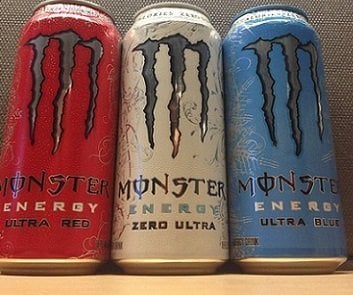Sports Snacks – All created equal?
Are all sports snacks and supplements created equal? This expert breaks down his 3 rules for picking the perfect snack that won’t bust your waistline while filling you up and providing you the energy you need! Check out Part I now!
Sports Snacks: Supplements…
Those unregulated, expensive, heavily marketed magic bullets promise to make us bigger, stronger, faster, feel more energized, lose weight, gain weight, super-hydrate, or in some way give us that competitive edge.
Unfortunately, supplements are unregulated by the FDA. This means no assurances of potency, quality, or valid ingredient listing.
With an introduction like that, it sounds like I am against the use of supplements – I’m not. I do however need to put them in the right context for your proper digestion. Today we will look at a sub-category within the supplement market – Sports Snacks for kids and adults.

One of the challenges parents face in the nutrition and supplement marketplace, is the dizzying array of choices, along with their unsupported marketing claims and flawed research. In an attempt to cull the sports snack herd, I have created 3 simple rules that will guide you in your sports snack choices.
Each of these rules will be presented in three weekly articles beginning with today’s article, covering Rule #1.
All sports snacks provide the same basic ingredient – carbohydrates. Although some add in protein, most are not of a type or quality to be relevant and counted as a protein food source.
As such, choosing a sports snack simply becomes an exercise in avoiding what is bad and choosing between what is leftover based on taste.
Simply following Rule #1 below, will enable you to make healthy and relevant sports snack choices now and in the future.
If you wish to dig a little deeper into the topic, then make sure to also read Rules 2 and 3 over the next two weeks.
Rule 1 – Narrow down list of snack choices by discounting any that contain artificial sweeteners, flavors, additives and/or colors. Simply choose from what is left by taste.
DO NOT eat or drink sports snacks that contain the ingredients below:
- Aspartame
- Acesulfame K / Acesulfame Potassium
- Corn syrup / high fructose corn syrup / Sucralose
- Artificial flavors, sweeteners, or colors, including Stevia.*
- Stimulants – Caffeine, Ginko, Guarana, Ginseng, Gotu Kola, and Hoodia, to name a few.
- Note: Most soft drinks and so-called energy drinks violate this list.
*Although the whole leaf Stevia plant native to South America is natural, the stevia extract added to your food or sold as sugar substitutes is most often not. After the natural Stevia leaf is plucked from nature, it will go through chemical processing, as many as 40 steps for Cargill/Coca-Cola/Pepsi-Co products such as Truvia that includes acetone, isopropanol and methanol before it ends up in your stomach. There are a few minimally processed stevia products such as Sunectar Stevia by Sunrider.
Let’s take a look at what sports snacks are left once we apply Rule #1.
Drinks:
- Water
- Vita-Coco (unflavored): electrolytes and water, without the sugar.
- Vita-Coco (flavored): electrolytes and water, with added sugar.
- Protein + Electrolyte mix. Ex. LG 1 Recovery Drink Mix
- Milk: Protein + Sugar. Flavored milk, including chocolate, is NOT necessary.
- Whey protein isolates or concentrates that do not violate the ingredients list above.
- I use “Whey Cool” by Designs for Health
Food:
- Fruit – Provides natural, simple sugars + fiber to help replenish glycogen in muscles.
- Clif Bar, Clif Kid Z-Bar, Kashi GoLean Crisp, Flavor & Fiber by Gnu Foods, etc.
- Any granola mix. Granola Crisps by Yogi is a great choice.
- Whole-grain cereal in a sandwich bag eaten as granola.
- Dried fruit.
- Nuts and seeds. Sunflower, Almond, and Pumpkin are good choices unless their consumption is restricted by you, friends, teammates, etc.
- Protein from any meat, fish, dairy, or egg source.
Chew on This:
Choose whole food snacks first, such as portable fruit, vegetables or hard-boiled eggs.
When necessary, supplement your whole food snacks with packaged foods that adhere to Rule #1.
Whether Gatorade, a Clif Kid Z Bar, or a granola bar, manufactured sports snacks fall into the supplement category. By definition they should supplement your real food eating plan, to fill in gaps that exist in your whole food diet.
Daily I see kids eating sports bars and drinking sports/energy drinks on the way to school, during lunch, and after school. Beyond unnecessary, this practice overloads the body with fast-acting, simple sugars.
The body responds by increasing the production of insulin, which interferes with a host of proper metabolic processes, including fat metabolization.
As I explain in my nutrition book The 3/4 Rule a strong metabolization and the nutrition that supports it, is all about proper ratios of proteins, fats, and carbohydrates, while minimizing artificial additives.
Wrap-up
So, sports snack selection is actually pretty simple. Eliminate options by avoiding the ingredients listed in Rule #1, then make your choices based on taste. Ultimately this leads us back to what we have always known:
Choose whole foods rather than conveniently packaged grab food.
Do you or your children use sports drinks/bars? Why or why not? Which ones do you use? Are they always in the house and available? If so, why?
See you next week for Rule #2!
- Your Guide to Choosing Sports Snacks: Glycemic Index - October 6, 2015
- Your Guide To Healthy Snacks For Sports & Energy Drinks - September 30, 2015
- Your Guide To Healthy Snacks For Athletes: Part 1 - September 22, 2015